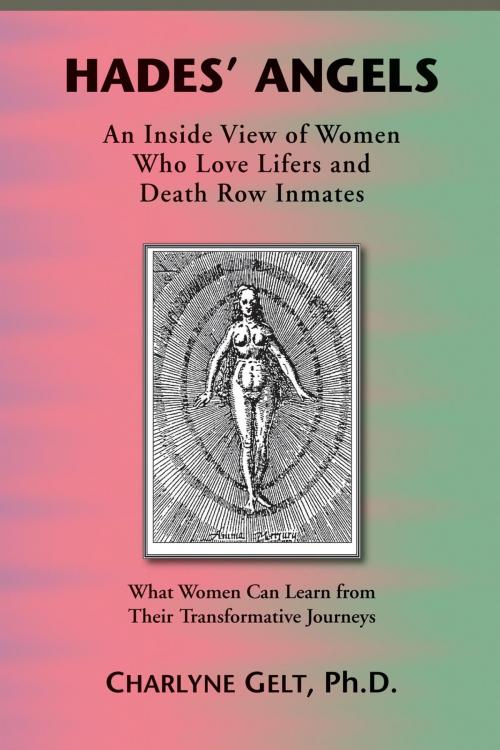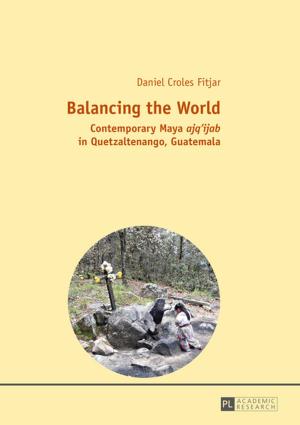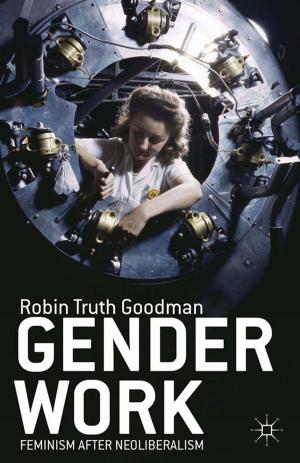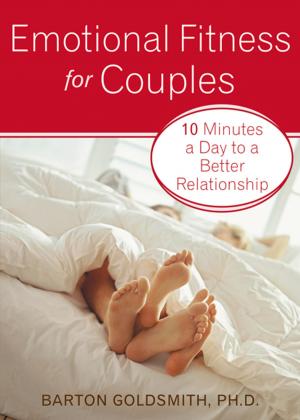Hades' Angels
An Inside View of Women Who Love Lifers and Death Row Inmates
Nonfiction, Family & Relationships, Family Relationships, Alternative Family, Health & Well Being, Psychology, Interpersonal Relations, Relationships, Marriage| Author: | Charlyne Gelt, Ken Rubin | ISBN: | 9780991629831 |
| Publisher: | Garden Wall Publishers | Publication: | May 6, 2014 |
| Imprint: | Garden Wall Publishers | Language: | English |
| Author: | Charlyne Gelt, Ken Rubin |
| ISBN: | 9780991629831 |
| Publisher: | Garden Wall Publishers |
| Publication: | May 6, 2014 |
| Imprint: | Garden Wall Publishers |
| Language: | English |
Hades' Angels: An Inside View of Women Who Love Lifers and Death Row Inmates is the story of twenty-six women who each experienced a transformative journey through their relationships with prison lifers and death row inmates. These women did not know these men prior to his incarceration. This work applies Kohut's understanding of the individual, the soul's drive for potentiality from inner bondage, out of deadness and subjectivity, towards wholeness, to heal their early childhood narcissistic injury and sustain meaning on three levels: personal, interpersonal, and societal. Yes, women in the general population can learn a great deal from this unique population of women because their stories replicate those of strong, outwardly successful women in the general population. Hades' Angels demystifies the "magnetic draw" towards destructive relationships and suffering and offers readers the opportunity to look into their own lives and begin to confront the true source of their pain. There are universal lessons for women on the outside who have similar kinds of wounding. Hades' Angels probes the hidden forces behind relationships. As such it draws on a wider readership, not only those who want to read stories about the Mr. Wrongs of the world, but those who want to learn how women--even those in relationship with prison inmates-are able to heal, to transform and grow so the Mr. Wrongs no longer find their way into their lives. It is not just the Hades' Angels who are magnetically drawn to demon lovers or to men with the depth of a puddle. Even the most capable, intelligent, articulate woman, wounded at the core, may fall unconsciously into this kind of arrangement. Hades' Angels offers story, analysis, and interpretation and teaches readers how to identify, confront and heal the kind of wounds whose source remains a mystery. Why can a nice girl, a former cheerleader, honor student, high school principal, publishing executive fall in love with a prison lifer? It is one question that many readers want to have answered. Hades' Angels shows readers why this kind of relationship happens. The subjects are "nice" women, good women, independent, bright, self- supporting, caretakers/peacemakers, nurturers, who still have a history of failed relationships. Hades' Angels shows readers the unrecognized "shadow" part in the lives of the 26 women interviewed. Their unacknowledged anger and hurt, buried within since childhood, recognizes itself in the mirror of the other. Differently expressed, it is the "unseen magnetic draw" that forms their common wound. "Beauty and the beast," though polar opposites, are in the world of the emotions, psychologically mated. The reader of Hades' Angels will understand how a woman learns to act-in, repress her feelings, and how her historical, emotional and family dynamics are the lens that infuses and defines her adult relationship attractions. The reader will be able to understand the powerful impact of the family of origin marital dynamics on her own attractions in future relationships. This book shows how the unacknowledged childhood wounds affect even outwardly successful clients seen in private practice; the reader will learn to recognize how they impact her life.
Hades' Angels: An Inside View of Women Who Love Lifers and Death Row Inmates is the story of twenty-six women who each experienced a transformative journey through their relationships with prison lifers and death row inmates. These women did not know these men prior to his incarceration. This work applies Kohut's understanding of the individual, the soul's drive for potentiality from inner bondage, out of deadness and subjectivity, towards wholeness, to heal their early childhood narcissistic injury and sustain meaning on three levels: personal, interpersonal, and societal. Yes, women in the general population can learn a great deal from this unique population of women because their stories replicate those of strong, outwardly successful women in the general population. Hades' Angels demystifies the "magnetic draw" towards destructive relationships and suffering and offers readers the opportunity to look into their own lives and begin to confront the true source of their pain. There are universal lessons for women on the outside who have similar kinds of wounding. Hades' Angels probes the hidden forces behind relationships. As such it draws on a wider readership, not only those who want to read stories about the Mr. Wrongs of the world, but those who want to learn how women--even those in relationship with prison inmates-are able to heal, to transform and grow so the Mr. Wrongs no longer find their way into their lives. It is not just the Hades' Angels who are magnetically drawn to demon lovers or to men with the depth of a puddle. Even the most capable, intelligent, articulate woman, wounded at the core, may fall unconsciously into this kind of arrangement. Hades' Angels offers story, analysis, and interpretation and teaches readers how to identify, confront and heal the kind of wounds whose source remains a mystery. Why can a nice girl, a former cheerleader, honor student, high school principal, publishing executive fall in love with a prison lifer? It is one question that many readers want to have answered. Hades' Angels shows readers why this kind of relationship happens. The subjects are "nice" women, good women, independent, bright, self- supporting, caretakers/peacemakers, nurturers, who still have a history of failed relationships. Hades' Angels shows readers the unrecognized "shadow" part in the lives of the 26 women interviewed. Their unacknowledged anger and hurt, buried within since childhood, recognizes itself in the mirror of the other. Differently expressed, it is the "unseen magnetic draw" that forms their common wound. "Beauty and the beast," though polar opposites, are in the world of the emotions, psychologically mated. The reader of Hades' Angels will understand how a woman learns to act-in, repress her feelings, and how her historical, emotional and family dynamics are the lens that infuses and defines her adult relationship attractions. The reader will be able to understand the powerful impact of the family of origin marital dynamics on her own attractions in future relationships. This book shows how the unacknowledged childhood wounds affect even outwardly successful clients seen in private practice; the reader will learn to recognize how they impact her life.















